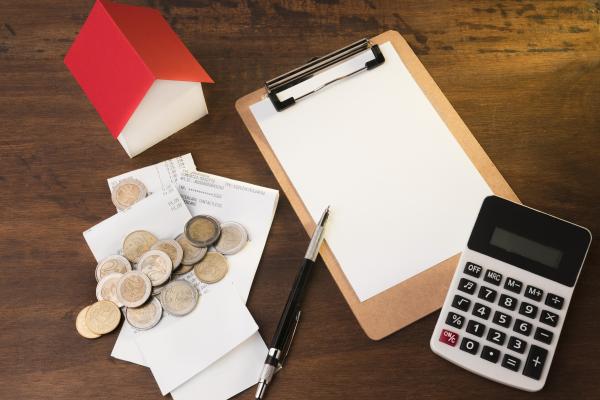- May 06, 2025
- Renting
- 419
How Green Technology Is Transforming the Rental Market in Dubai
Dubai’s real estate market is no stranger to innovation—and sustainability is quickly becoming a core priority for both developers and renters. As environmental concerns grow and global energy trends shift, green technology is playing a bigger role in shaping the way people rent and live in Dubai.
Today, more tenants are actively looking for homes that not only meet modern comfort standards but also align with eco-conscious values. From smart automation to renewable energy integration, here’s how green technology is changing the rental experience in Dubai.
1. Smart Energy Management in Modern Rentals
Tenants are increasingly drawn to properties equipped with smart systems that promote energy efficiency. These solutions are not only sustainable—they also translate into real savings:
Smart thermostats automatically adjust temperatures based on occupancy and outdoor conditions.
Motion-sensor LED lighting ensures energy is only used when needed.
Energy-efficient appliances reduce electricity bills while lowering a property’s carbon footprint.
Developers are integrating these technologies not just to appeal to eco-minded renters, but also to improve long-term value and efficiency.
2. Intelligent Water-Saving Solutions
In a desert city like Dubai, water conservation is a critical part of sustainable living. Many rental properties now feature systems that help control and reduce unnecessary water use:
Low-flow taps and showers that save water without sacrificing comfort.
Smart irrigation systems that adjust based on weather patterns to reduce overwatering in landscaped areas.
Greywater recycling systems that repurpose water from sinks and showers for use in toilets or gardening.
These solutions help renters reduce utility costs and contribute to water conservation in a city where every drop matters.
3. Renewable Energy Is No Longer Just for Villas
Solar energy is becoming a reality across a growing number of Dubai communities. In some rental buildings, photovoltaic panels are used to power common areas, while others are experimenting with more advanced energy systems:
Solar panels installed on rooftops can significantly reduce electricity use in shared spaces like hallways, gyms, or lobbies.
Geothermal systems are being piloted in certain developments to regulate indoor temperatures with minimal environmental impact.
While not all rental units are fully solar-powered yet, the trend is gaining traction, especially in newer off-plan developments that prioritize sustainability from the ground up.
4. Eco-Friendly Building Materials and Design
Another less obvious yet critical aspect of green rentals in Dubai is the use of sustainable materials and design techniques:
Advanced insulation materials reduce dependency on air conditioning, a major driver of energy use in the region.
Low-VOC paints and finishes improve indoor air quality and are healthier for residents.
Locally sourced or recycled construction materials minimize environmental impact during the building phase.
These features might not be obvious at first glance, but they significantly enhance the livability and long-term sustainability of a rental home.
5. Certifications That Matter to Renters
Green buildings in Dubai can now be identified by specific certifications and government-backed programs that signal their environmental performance:
LEED (Leadership in Energy and Environmental Design) is an internationally recognized certification for high-performing green buildings.
Pearl Rating System under Estidama (a UAE-specific sustainability program) ensures developments are built with sustainability in mind.
Renters can use these certifications as a guide when choosing a property that aligns with their values and budget.
6. Why Tenants and Landlords Both Benefit
Green features are no longer just a luxury; they’re becoming a competitive edge in the Dubai rental market. Here’s why both parties win:
For tenants: Lower utility bills, improved indoor air quality, and the satisfaction of living more sustainably.
For landlords: Greater appeal to a growing market segment, higher occupancy rates, and potentially better long-term asset performance.
Eco-conscious homes also tend to attract more long-term tenants, which reduces turnover and maintenance costs for landlords.
7. What’s Coming Next in Sustainable Renting
The adoption of green technology in Dubai’s rental market is still evolving, but future-forward trends are already taking shape:
Fully integrated smart communities where sustainability and tech go hand-in-hand, from electric vehicle charging stations to community gardens.
IoT-enabled property management that uses data to monitor and optimize energy, water, and waste usage.
Government incentives and regulations that continue to push for higher sustainability standards across residential developments.
Tenants who prioritize smart living will have more options than ever before—and developers who embrace these changes will stand out in a competitive market.
Conclusion
Green technology is no longer a future trend in Dubai’s rental market—it’s a present-day reality. Whether through smart automation, renewable energy, or sustainable materials, eco-conscious rentals are reshaping what it means to live comfortably and responsibly in the city.
For renters who want to reduce their carbon footprint without sacrificing lifestyle, Dubai offers a growing range of green rental options that make sustainable living easy, efficient, and even cost-effective.
Popular Categories
Popular Posts

Understanding Ejari: Essential for Renters in Dubai



